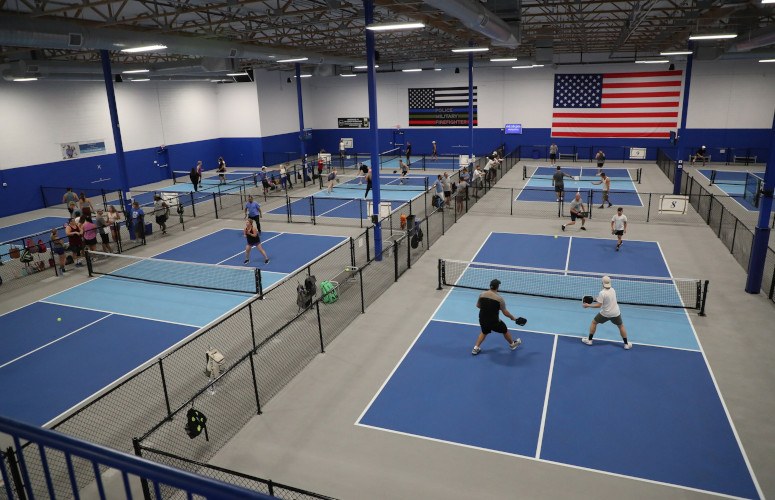
Rutgers Report Finds Latina Immigrants Are Scraping by in NJ
A new report by the Rutgers Center for Women and Work reveals what life is like for some of New Jersey’s lowest paid workers
On Mar 14, 2023Latinas represent 9% of New Jersey’s labor force, filling many essential, frontline roles and contributing to their local economies. However, a new report by the Rutgers Center for Women and Work, in partnership with the Latino Action Network Foundation, reveals many Latinas are struggling with low wages, non-existent benefits, no childcare access, and virtually no time or money to do anything other than work and care for their family.
“These women are doing the work that no one else wants to do, like cleaning homes and working in factories,” said Glenda Gracia-Rivera, a researcher at the Rutgers center and lead author of the report. “The gender pay gap is well known, but this report goes beyond the numbers to demonstrate what life is really like for Latina immigrants in our state. The findings are frankly alarming.”
New Jersey ranks near the bottom of all states (49th) on pay equity for Latinas, with only California faring worse. Latinas in New Jersey earn, on average, 45 cents for every dollar a non-Hispanic white man earns, totaling just $27,000 to $30,000 per year. Part-time and seasonal workers earn even less. Many Latinas lack affordable housing, childcare, healthcare, mental health services, paid time off, unemployment insurance, and other social safety nets. Compared to second- or third-generation Latinas, immigrants are even harder hit by these deficits.
Rutgers researchers interviewed 69 women who receive services at the Hispanic Women’s Resource Centers to learn more about the lived experiences of Latina immigrants in New Jersey. Based in Asbury Park, Camden, Dover, and Newark, these non-profit HWRC’s provide free community health, education, and employment services to a rapidly growing number of clients. The interviews revealed a pattern of economic and employment challenges.
- Finding Work: With limited professional networks in the U.S., the women often turn to family and friends (48%), their HWRC (20%), or temporary agencies (18%) for job leads. Many settle for low-wage jobs as housecleaners or food service workers.
- Facing Barriers: The women cite limited English proficiency (46%), lack of childcare access (30%), immigration status (14%), transportation issues (13%), and racism/discrimination (13%) as the five biggest obstacles to finding a job that pays better. (Percentages do not add to 100% as many women face multiple challenges.)
- Scraping By: Most of the women (83%) earn just enough money for basic expenses, though many (38%) are stretching themselves even thinner by sending money to struggling family members in the U.S. or in their home country.
- Feeling Sick: Few of the women (7%) have paid time off to care for themselves or a loved one, sometimes going to work sick to avoid losing a day’s pay. Most women (64%) did not know about New Jersey’s earned sick leave and paid family leave policies.
- Always Working: Only four of the 69 women have enough time for leisure activities, and only two women have the money to do anything fun. Their lives are a treadmill of going to work, caring for family members, and trying to make ends meet.
- Looking Ahead: Many women cite learning English as their #1 personal goal (29%), and some have enrolled in English as a Second Language classes at their HWRC. The women also express hope of owning a home (28%), advancing their education (22%), finding a stable career (20%), and attaining legal status (19%) among other goals.
“This study highlights the important work Hispanic Women’s Resource Centers perform in Latino communities across the state, addressing the wage gap and helping families enter the middle class,” said Jesselly de la Cruz, executive director of the Latino Action Network Foundation. “The case for investing in New Jersey’s Latina women is clear. LANF looks forward to working with Governor Murphy and the Legislature on increasing investment in this critical program so that more New Jersey families can benefit from these community resources.”
The HWRC’s have seen a massive spike in demand, jumping from 209 clients in 2016-17 to 3,309 in 2020-21. They are the Community Affairs and Resource Center in Asbury Park and Lakewood; the Hispanic Family Center of Southern New Jersey in Camden; the Morris County Organization for Hispanic Affairs in Dover; and La Casa de Don Pedro in Newark. The authors recommend that New Jersey expand its support of the centers by:
- Establishing new HWRC’s in unserved communities across New Jersey such as Passaic County;
- Increasing funding to the existing HWRC’s to expand their menu of services, with a focus on housing, immigration, and legal services; and
- Empowering the HWRC’s to provide mental health services to clients, many of whom come to New Jersey with trauma histories, compounded by the challenges in this report.
To access more business news, visit NJB News Now.
Related Articles:





